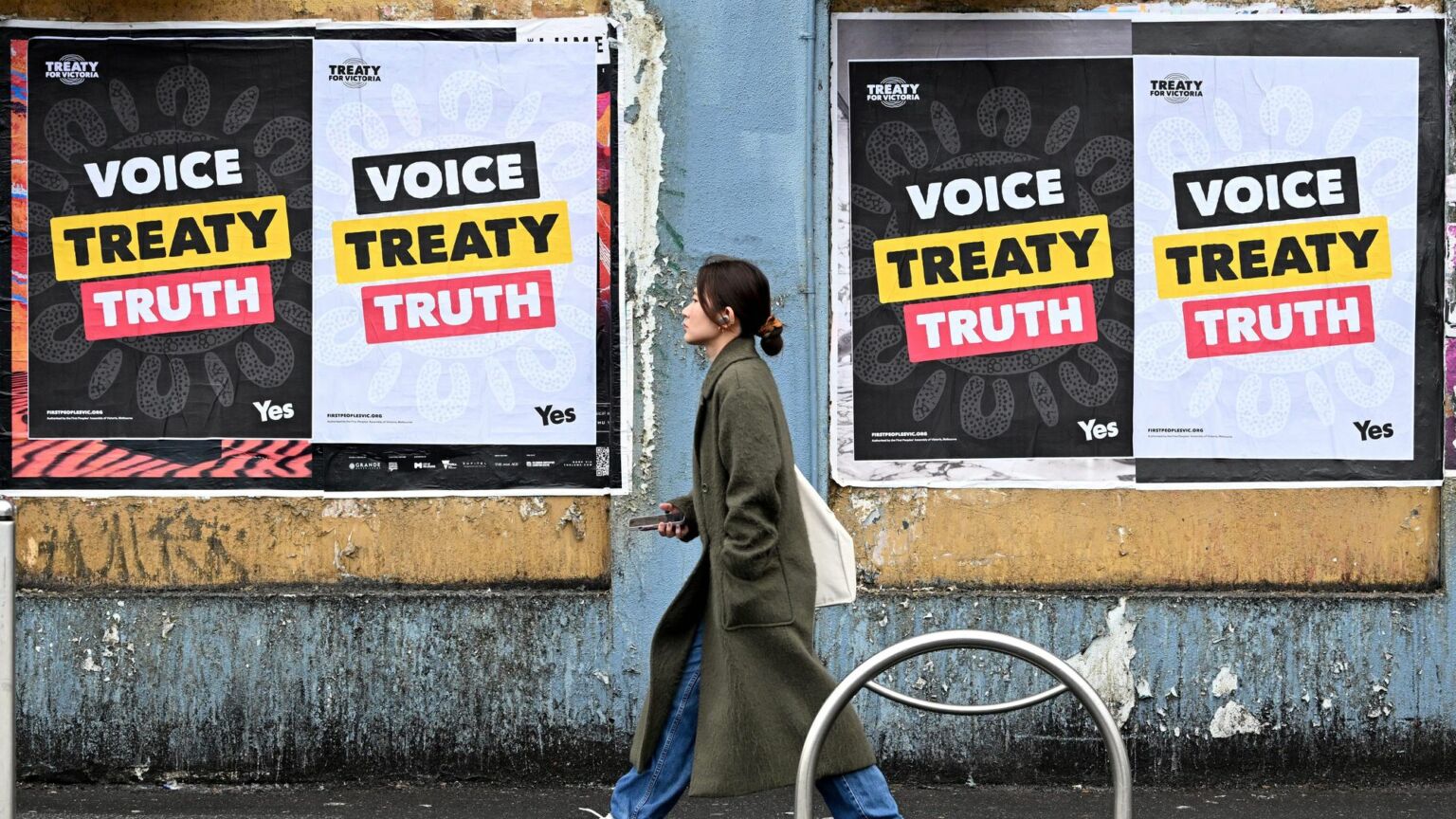The Voice to Parliament is still dividing Aussies
South Australia shows us that democracy and identity politics don’t mix.

Want to read spiked ad-free? Become a spiked supporter.
Last year, Australians rejected the so-called indigenous Voice to Parliament initiative at a national referendum. It was a stunning rebuke to this attempt to divide Australians by race and put identity politics at the heart of the Australian constitution – to set up a new body to represent one section of the population only.
But the state government of South Australia is apparently still determined to do what the national government failed to do. The parliament legislated to set up a statewide ‘Voice’ last March, months before the nationwide referendum, and indigenous South Australians got to choose delegates for this new, supposedly representative body last month.
Prime minister Anthony Albanese’s mistake was to assume voters would just go along with him. In the referendum campaign last October, he proposed setting up a new national body of representatives for Aboriginal and Torres Strait Islander people. Together, they would form a constitutionally sanctioned lobby group (or Voice) with the ear of MPs and ministers. But beyond that, he didn’t tell voters what the Voice would do, be or cost. The PM handed voters a blank cheque and said ‘sign on the dotted line’. Australians wisely threw it back in his face. Sixty per cent voted No.
South Australia state premier Peter Malinauskas is craftier. He wasn’t foolish enough to take his own, state-level version of the Voice to a referendum. Instead, South Australia’s Voice was brought into being through an act of the SA parliament, with state representatives passing the First Nations Voice Act on 26 March last year. Why hold a referendum when you can just pass a bill and bypass the voters entirely?
Of course, our MPs here in South Australia are elected to legislate on our behalf. Voters do not expect or want to have a say on every single issue, from how to reduce ambulance queues to the location of police-horse barracks (to pick just a few of the hot-button topics in SA politics over the past few years).
But the creation of a Voice to Parliament is different. It represents a fundamental change to how South Australia is governed – and a betrayal of democracy to boot. Its indigenous members will have the power to address the parliament on any bill that interests or concerns them. They can meet with cabinet ministers and heads of departments. It will give some voters a greater voice in government than the rest of us. It’s like the indigenous equivalent of Britain’s House of Lords. We should never have been denied a say on it.
The Voice isn’t even democratic or legitimate on its own terms. Last month, indigenous South Australians got the chance to vote for candidates. Out of an estimated 27,534 indigenous South Aussies who were eligible to vote, only 2,748 did. So the Voice only speaks for a small minority of just one patch of the population.
Aboriginal-affairs minister Kyam Maher says that last month’s ballot provides a ‘strong first result’ and a ‘platform for the Voice to grow’. This is delusional. Some candidates were elected with just six votes. The Voice doesn’t even have the right to speak for the people it’s supposed to be speaking for. That South Australia’s government can call an election turnout of less than 10 per cent a success only shows how estranged from democracy they’ve become.
South Australia’s Voice to Parliament is already an anti-democratic farce. The sooner it is abolished, the better.
William J Barker is a writer of fiction, non-fiction and poetry. Read his substack here and his film-criticism magazine, Into the Screen, here.
Picture by: Getty.
Who funds spiked? You do
We are funded by you. And in this era of cancel culture and advertiser boycotts, we rely on your donations more than ever. Seventy per cent of our revenue comes from our readers’ donations – the vast majority giving just £5 per month. If you make a regular donation – of £5 a month or £50 a year – you can become a and enjoy:
–Ad-free reading
–Exclusive events
–Access to our comments section
It’s the best way to keep spiked going – and growing. Thank you!








Comments
Want to join the conversation?
Only spiked supporters and patrons, who donate regularly to us, can comment on our articles.